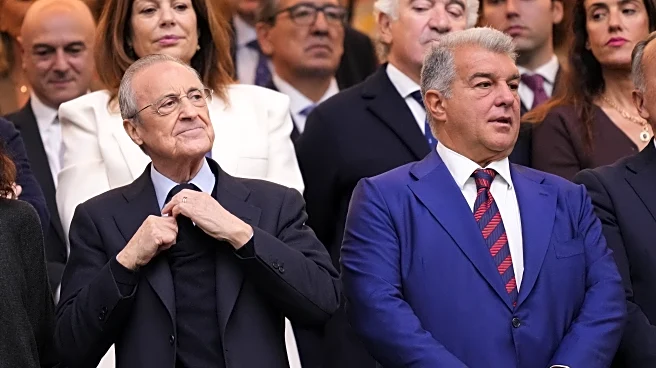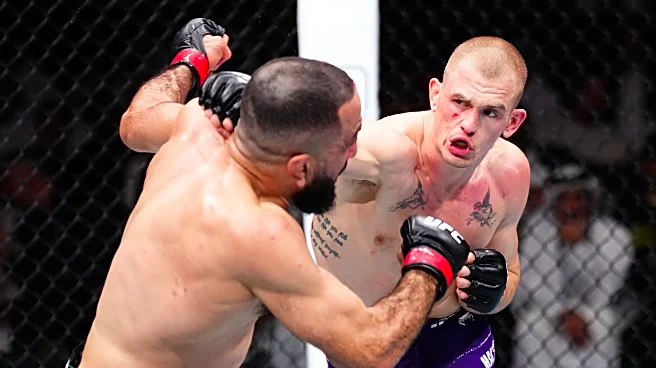What's Happening?
A group of 1,200 Hollywood figures, including actors Liev Schreiber, Mayim Bialik, and Debra Messing, have signed an open letter opposing a boycott of Israeli films. This letter was organized by Creative Community For Peace in response to a petition signed by over 4,000 actors and film professionals pledging not to work with Israeli film institutions, which they accuse of being involved in genocide and apartheid against Palestinians. The signatories of the original petition include notable figures such as Mark Ruffalo, Olivia Colman, and directors like Ava DuVernay and Adam McKay. The opposing letter argues that Israel's entertainment industry fosters collaboration between Jewish and Palestinian artists, and that Israeli film institutions are often critical of government policies.
Why It's Important?
The opposition to the boycott underscores the complex dynamics within the entertainment industry regarding political issues. It highlights the role of cultural institutions in fostering dialogue and collaboration across communities. The boycott and its opposition reflect broader debates about the role of art in political discourse and the responsibilities of artists in addressing international conflicts. The situation also illustrates the potential impact of cultural boycotts on international relations and the entertainment industry, affecting how films are produced and distributed globally.
What's Next?
The ongoing debate may lead to further discussions within the entertainment industry about the role of cultural boycotts and the responsibilities of artists in political matters. It could also prompt more public statements from industry figures, potentially influencing public opinion and policy regarding cultural exchanges. The situation may evolve as more artists and organizations weigh in, possibly affecting future collaborations and productions involving Israeli film institutions.
Beyond the Headlines
The controversy raises questions about the ethical responsibilities of artists and cultural institutions in political conflicts. It highlights the tension between artistic freedom and political activism, and the potential for cultural boycotts to impact diplomatic relations. The debate may also influence how cultural narratives are shaped and perceived globally, affecting the portrayal of complex political issues in media and entertainment.










